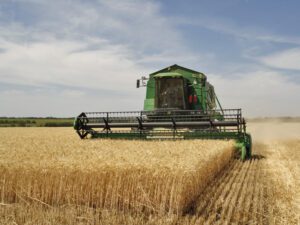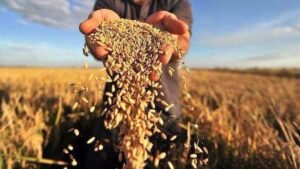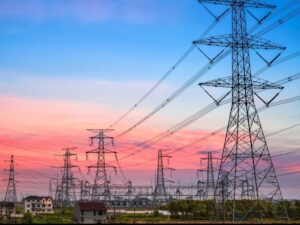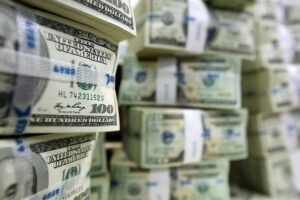
Uzhgorod International Airport received its first flight on Friday in accordance with the intergovernmental agreement signed between Ukraine and Slovakia in September 2020.
According to the press service of the Ministry of Infrastructure of Ukraine, now air traffic control, as well as the use of airspace at a tactical level, will take place in a certain part of the airspace of Slovakia. Non-precision instrument approach procedures will be applied at the Uzhgorod aerodrome.
The ministry said that this agreement was necessary due to the fact that this airport is located in a mountainous area in such a way that the threshold of runway 10 is located a few hundred meters from the Ukrainian-Slovak border. Therefore, the use of the airspace of a neighboring country is a prerequisite for instrument landings at this airfield.
“From today, the possibilities of using the airfield for airlines in Uzhgorod have been expanded. This is the result of Ukraine’s long-term work at the international level, and we expect that it will have a positive effect on the development of air transportation in the region. We see that there is a demand for both international and domestic flights. For example, flights on the route Kyiv – Uzhgorod – Kyiv, restored this summer, almost always take place with full load of seats,” Minister Oleksandr Kubrakov said.
UkSATSE, in turn, said that Ukraine’s ability to manage air traffic in part of the airspace of an EU member state is proved by an updated certificate that the state-owned enterprise received from the EU Aviation Safety Agency (EASA) on August 31, 2021.

Ukraine continues to harvest grain and leguminous crops, as of September 9, the total harvest of grain and leguminous crops amounted to 45 million tonnes from a total area of 10.3 million hectares, farmers have also begun harvesting sunflower, sugar beet and soybeans, the Ministry of Agrarian policy and Food said on its website on Friday.
According to the ministry, 32.9 million tonnes of wheat were threshed, 10.94 million tonnes of barley, 2.8 million tonnes of rapeseed, and 0.57 million tonnes of peas. The highest average yield of wheat and rape is in Khmelnytsky (6.52 tonnes per ha and 3.5 tonnes per ha, respectively), barley – in Kyiv region (5.72 tonnes per ha), peas – in Volyn region (4 tonnes per ha).
The leaders in the threshing of grain and leguminous crops were Odesa region with an indicator of more than 4.12 million tonnes, as well as Kharkiv (3.55 million tonnes), Dnipropetrovsk (3.38 million tonnes), Mykolaiv (3.25 million tonnes), Zaporizhia (3.23 million tonnes), and Kherson (3.11 million) regions.
The Ministry of Agrarian Policy also announced the completion of the harvesting of rapeseed: in total, 2.8 million tonnes of seeds were harvested from an area of 1 million hectares. Its average yield was 2.79 tonnes per ha.
Farmers from 13 regions harvested 715,400 tonnes of sunflower from 344,000 hectares (5% of the planned area) with an average yield of 2.08 tonnes per ha.
Agrarians from 15 regions threshed 34,300 tonnes of buckwheat from 27,940 hectares (one third of the planned area), and agricultural producers from 11 regions harvested 88,680 tonnes of millet from 39,840 hectares (51%).
According to the Ministry of Agrarian Policy, sugar beet harvesting has started in Vinnytsia, Rivne and Cherkasy regions. A total of 148,000 tonnes were harvested from 3,300 hectares (1% of the planned area).

Ukraine since the beginning of the 2021/2022 marketing year (MY, July-June) and as of September 10, exported 10.29 million tonnes of grain and leguminous crops, which is 11.7% more than the figures for the same date of the previous MY.
According to the information and analytical portal of the agro-industrial complex of Ukraine, to date, Ukraine exported 5.92 million tonnes of wheat (4.1% less compared to the same date 2020/2021 MY); 2.99 million tonnes of barley (up 24.7%); 1.34 million tonnes of corn (2.2 times more); and 24,700 tonnes of flour (33.7% less).
As of the indicated date, 14,300 tonnes of rye were also exported, which is 9.5 times more than the indicators of the last MY.

Ukraine in January-August 2021 reduced electricity exports by 17% (by 505.6 million kWh) compared to the same period in 2020, to 2.475 billion kWh, according to NPC Ukrenergo.
According to the calculations of Interfax-Ukraine, in particular, supplies from Burshtyn TPP energy island in the direction of Hungary, Slovakia and Romania decreased by 6.9% (by 124.4 million kWh), to 1.678 billion kWh.
Electricity supplies to Poland decreased by 35.6% (by 356.7 million kWh) compared to the same period last year, to 644.8 million kWh.
Electricity exports to Moldova increased by 17.2% (by 22.4 million kWh), to 152.6 million kWh.
There were no supplies to Belarus and Russia in January-August 2021 (versus 46.9 million kWh supplied to Belarus over the eight months of 2020).
In August 2021, Ukrainian electricity exports amounted to 344.1 million kWh, which is twice as much as in August 2020 (171.4 million kWh).
In addition, over the eight months of 2021, Ukraine reduced electricity imports by 44.2% (by 802.5 million kWh) compared to the same period last year, to 1.014 billion kWh. In particular, Belarus supplied 522.6 million kWh, Slovakia – 285.4 million kWh, Russia – 101.9 million kWh, Hungary – 66.4 million kWh, and Romania – 38 million kWh.
In August 2021, electricity imports amounted to 27.1 million kWh, which is 29.8% less than in August2020 (38.6 million kWh).
Within the framework of technological flows associated with the parallel operation of the integrated power system of Ukraine with the power systems of neighboring countries and power supply of dead-end areas, 37 million kWh of electricity were imported from the Russian Federation over the eight months, and 0.5 million kWh from Belarus.
Emergency supplies during this period from Slovakia amounted to 0.7 million kWh, from Belarus – 9.7 million kWh, to Belarus – 0.4 million kWh, and to Poland – 8.5 million kWh.

Seven Ukrainians were injured in a road accident involving a minibus in which eight people traveled from Ukraine to Poland.
According to the Ukrainian Embassy in Poland, the accident occurred on Tuesday near Lublin (Poland).
“All the victims were promptly accommodated in four hospitals in Lublin. The state of the victims is of moderate severity,” the embassy’s said on its Twitter account.
A consul is at the hospital to provide consular assistance to the victims. Contacts with relatives are being restored.
The embassy posted on Twitter the hotline in Lublin, the contact numbers of the embassy and the Ukrainian Foreign Ministry.

The international reserves of Ukraine as of September 1, 2021, according to preliminary data, amounted to $31.614 billion (in equivalent), which is 9.2% more than at the beginning of August this year ($28.951 billion) according to the data of the National Bank of Ukraine (NBU).
“As of September 1, 2021, Ukraine’s international reserves, according to preliminary data, amounted to $31.614 billion (in equivalent). This volume of reserves is a record over the past nine years … In August, the reserves increased by 9.2% due to, first of all, the receipt of funds in the amount of 1.928 billion special drawing rights (SDR) within the general allocation from the IMF,” the report says.
As the National Bank notes, the dynamics of the August reserves was affected by the operations of managing the state debt: the total volume of payments for servicing and repaying the state and state-guaranteed debt in foreign currency amounted to $ 188 million (in equivalent).
It is specified that $ 33.7 million was spent on servicing and redeeming external bonds, $ 18.2 million – on servicing and redeeming government domestic loan bonds, the rest – for fulfilling other government obligations in foreign currency.
At the same time, in August, foreign exchange receipts in favor of the government amounted to $ 8.8 million (in equivalent).
The dynamics of reserves was also influenced by the operations of the NBU in the interbank market. In particular, the central bank replenished its reserves by $ 348.3 million due to the fact that for most of August supply on the market prevailed over demand.
In addition, the dynamics of the indicator was influenced by the revaluation of financial instruments: last month their value decreased by $ 31.6 million (in equivalent), according to the National Bank.
The regulator noted as of September 1, 2021 the volume of international reserves covers 4.4 months of future imports – this is enough to fulfill the obligations of Ukraine, the current operations of the government and the NBU.
In addition, the NBU clarified that Ukraine’s net international reserves in August increased by $ 2.836 billion, or 15.3%, to $ 21.364 billion.